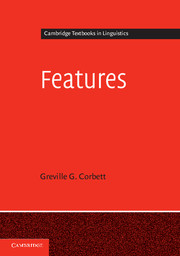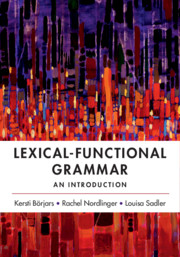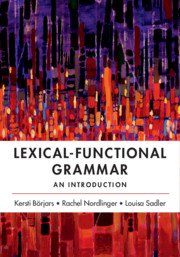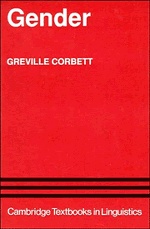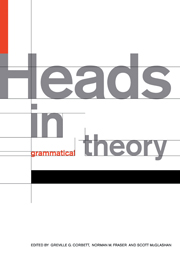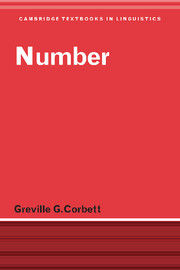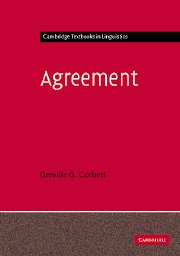Features
Features are a central concept in linguistic analysis. They are the basic building blocks of linguistic units, such as words. For many linguists they offer the most revealing way to explore the nature of language. Familiar features are Number (singular, plural, dual, …), Person (1st, 2nd, 3rd) and Tense (present, past, …). Features have a major role in contemporary linguistics, from the most abstract theorizing to the most applied computational applications, yet little is firmly established about their status. They are used, but are little discussed and poorly understood. In this unique work, Corbett brings together two lines of research: how features vary between languages and how they work. As a result, the book is of great value to the broad range of perspectives of those who are interested in language.
- Surveys a large number and wide range of different languages
- Brings together two main trends in linguistics, the more formal and the more data-oriented
- Takes examples from a broad spectrum of specialisms and approaches to linguistics
Reviews & endorsements
'Grev Corbett's latest book, Features, is the capstone in a portal of masterpieces. Like its predecessors on specific topics like gender, number and agreement, it exhibits Corbett's unique blend of typological breadth, clarity and morphosyntactic acumen. But it goes beyond them to show how a properly developed theory of features can help linguists get beyond their current impasse - 'like chemists without a list of the elements, or physicists with no account of particles', as he puts it in his introduction - towards a point where morphosyntactic theory is supple and comprehensive enough to deal rigorously with the full panoply of the world's linguistic diversity. Every linguist will benefit deeply from reading this book from cover to cover.' Nicholas Evans, Australian National University
'Greville Corbett's astonishing linguistic erudition is deployed here in an indispensable, encyclopedic, theoretically thoughtful overview of a topic that linguists have too often treated in an ad hoc way. Corbett believes, correctly, that it is truly important that theoretical linguists should be clear on the facts about the range of features and values found in the languages of the world.' Geoffrey Pullum, University of Edinburgh
Product details
October 2012Adobe eBook Reader
9781139786720
0 pages
0kg
10 b/w illus. 14 tables
This ISBN is for an eBook version which is distributed on our behalf by a third party.
Table of Contents
- List of figures
- List of tables
- Preface
- Abbreviations
- 1. Why features?
- 2. Formal perspectives: the internal structure of features
- 3. Features for different components
- 4. Justifying particular features and their values
- 5. Typology
- 6. Canonical typology and features
- 7. Determining feature values: a case study on case
- 8. Feature-value mismatches
- 9. Conclusions
- Appendix: standards and implementations
- Reference
- Author index
- Language index
- Subject index.

